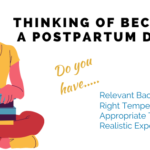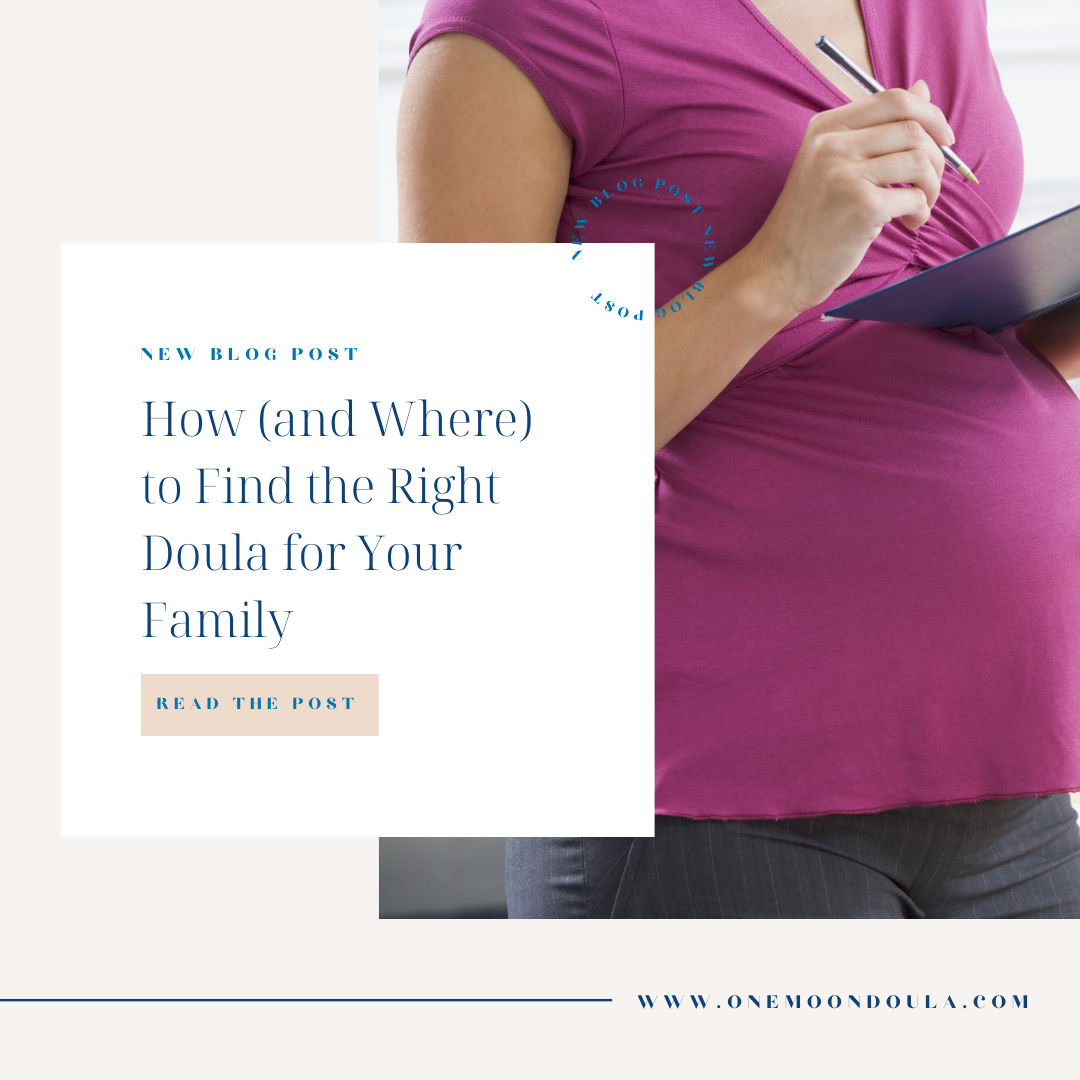When searching for a birth or postpartum doula, or newborn care specialist, you have quite a few options – so many, in fact, that it can be seriously overwhelming! We’ll outline some potential avenues and strategies here. And, since working with a doula agency could be one option that can help you avoid some of that overwhelm, save some time, and add to your peace of mind… in our next post we’ll go into further detail about Working with an Agency to Find the Right Doula.
[A disclaimer of sorts… While the author is an agency owner, she was also a solo doula once! In addition, having heard from so many families for over a decade about their experiences searching for a doula, we wanted to offer this resource to families regardless of which route they choose!]
So, here’s a range of options for you:
- Web search: You have the option of doing an internet search to find local doulas in your area that work as solo business owners. You may or may not be able to tell from their website what type of availability they have, or what their rates or minimums are (though many will have that listed) so this will likely involve submitting some online inquiries or reaching out by phone. Plenty of people find their doulas this way successfully of course, but there’s also the possibility you’ll spend quite a bit of time “barking up the wrong trees” if the doulas you reach out to aren’t available, don’t have certain requirements you’re looking for, aren’t responsive, don’t travel to your area, etc. A web search can however be a useful way to make sure a doula’s approach is aligned with what you’re looking for, especially if you check out their blog or social media. For example, if their materials are speaking primarily to families planning a homebirth, and you plan to give birth in a hospital, you may not be a match for each other. It just can take some time to weed through the results for all of the above information.
Because there is no formal licensing or uniform credentialing for this profession and technically anyone can call themselves a doula, this approach of finding a doula also may mean you want to call references and/or run background checks. You may also want to ask for verification of their credentials such as certificates from training they have taken, CPR certificates, vaccines, etc. Of course if you’ve already gotten names word of mouth, from trusted friends who had a great experience with a particular doula, that is valuable and can help steer you in the right direction for your search! More on that below.
- Directories: You also have the option of searching within an online directory, most of which don’t necessarily have a vetting process, but can at least get you a listing of doulas in your area and perhaps their relevant qualifications. If the directory is on the website of a doula training organization, it may be reasonable to expect that they’ve only listed people who have taken their training, so that you at least know this much about them. Other directories allow doulas to list their own qualifications, without proof of such, and have never spoken with or vetted the doulas in any way, which is just something to be aware of. (It’s probably the rare individual who says she has a doula training or lactation credential, for example, and doesn’t… but we’ve seen it, so it’s important to mention here). Again, as with a web search, you can always ask the doulas you interview for any paperwork you feel you need to be comfortable with your selection.
- Word of Mouth: And of course, as we mentioned above, there’s the option of word of mouth, at least to start you on your way! In fact, believe it or not, there are amazing doulas out there who do not have a website or much of a web presence at all! (As you can imagine some of the people drawn to doula work – to providing catered and hands-on support to a family – do not have a particular penchant for administrative tasks or marketing, for example, as these are very different skill sets!) That said, keep in mind that just because your friend loved their doula, doesn’t mean their doula will necessarily have availability for your needs, travel to your location, work the hours you desire, have the vaccines you might require, etc. So, having more than one option here is best.
- Agency Search/Matching: Agencies tend to have an existing team, or network, of previously vetted doulas that they can match with your family based on schedule type, location, and even personality fit, as well as any preferences you have regarding the doula’s specialty areas, experience level, vaccine status, pet ownership if you have allergies… and the list goes on! This can save you quite a bit of time on your search, and narrow things down more quickly and effectively. In addition, usually the agency owner has already put the candidate through an application and vetting process, which often involves calling references. One of the nice things about this is that an agency owner knows what types of questions to ask the references in order to really get an idea of the doula’s temperament for this work, areas in which they may need coaching and improvement, etc. Ideally the agency also solicits feedback on a regular basis from their clients to keep tabs on how the doulas are doing in case there is anything that needs to be addressed. This can bring expectant parents the important peace of mind when making such a big decision as who to invite into their home following the birth of their baby/ies. Other benefits of working with an agency can involve access to backup support if your doula becomes ill, access to the agency owner if things aren’t going as anticipated, and potentially access to a doula “team” if your schedule can’t realistically be covered by one provider. Agencies often provide continuing education for the doulas and so it can also mean finding a doula who is more committed to ongoing learning and growth.
A note on collectives/collaboratives: It’s possible that collaboratives can have the benefits of backup support, and in some cases may help you narrow down your search. That said, we’ve found these terms are used rather inconsistently and so it can be hard to know what the benefits might be depending on the circumstances. Often a collective or a collaborative is a group of colleagues who share some marketing costs and distribute inquiries/jobs amongst the group. This does not necessarily entail a formal vetting process for members, though in some cases it may. It doesn’t necessarily mean that there’s one person with oversight deciding who might be a good fit for you, though in some cases it may. Often collectives/collaboratives are under-resourced to deal with the administration of fielding inquiries, follow up, matching, and other types of client support because generally no one is being paid for their time spent doing these tasks. (There may be a fee to be a member, but it’s generally a low and one time fee that covers mainly the web presence/minimal marketing efforts of the collaborative, whereas with an agency, there’s either a fee involved to cover these activities, or the agency owner keeps some portion of the cost as their fee). On the flip side, there are agencies who for one reason or another don’t want to call themselves agencies, and therefore put “collaborative” in their title… but structurally work more like an agency! This can be confusing for families to navigate.
We’ll try to help you understand the different types of agencies (there are at least four potential agency types!) in our next post, Working with an Agency to Find the Right Doula.





